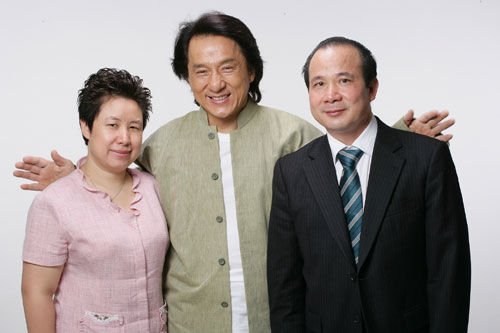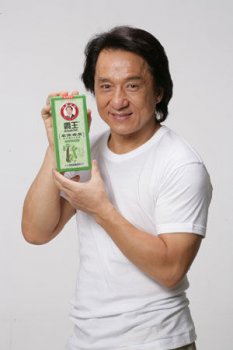
Former pesticide salesman Chen Qiyuan, 47, and wife, 43, joined China’s new rich on Friday with a net worth of $885 million after they listed their shampoo company, BaWang, and sold part of it to investors in Hong Kong’s most popular public offering this year.
Oversubscribed 446 times, BaWang set its listing price at the top of its indicative range, tapping a total of 1.7 billion Hong Kong dollars ($214 million) for the share floatation. Chen and his spouse still own three quarters of the cosmetics company. On its first day of trading BaWang, which was the most searched item on search engine Yahoo in Hong Kong that day, soared 32.4% to as high as 3.15 Hong Kong dollars (40 cents) before closing 27% higher at 3.03 Hong Kong dollars (39 cents). The herbal shampoo maker, bubbled another 7.3% to 3.25 Hong Kong dollars (42cents) on Monday.

Using Wan Yuhua’s connections with Chinese Academy of Sciences' South China Botanical Garden, the couple signed a cooperation agreement with the state-run botanical research unit, and established a small factory in 1989 in Guangzhou that pumped out low-cost shampoo sold at local grocery stores for about 4 yuan, according to Next Magazine in Hong Kong.
Riding on the rising enthusiasm for Chinese herbal medicine, Chen packaged himself as the 19th generation of a century-old herbalist family and repackaged BaWang with a more potent herbal formula in 2005, the local media added.
Chen then spent heavily on advertising his new product and turned himself into one of China’s leading shampoo sellers. His poster boy is kung fu action star Jackie Chan, hired in 2005 for 40 million Hong Kong dollars ($5.2 million) to promote the supposed restorative qualities of BaWang’s herbal soap. Leading up to Friday’s IPO, Chen blitzed Hong Kong TV with a barrage of new ads for the shampoo. The belief he has cultivated among China’s consumers that BaWang’s formula keeps hair dark and protects against baldness helped give it a 7.6% market share in the first half 2008 up from 6.2% in 2007, according to its listing prospectus.
“We believe our leading positions among Chinese brands in the overall shampoo market in the PRC (People Republic of China) and in the Chinese herbal shampoo market in the PRC are mainly attributable to our innovative and multi-faceted marketing strategies,” BaWang said in its listing document.
Its reputation for keeping hair youthful, in turn, allowed Chen to slap a hefty price tag on his product. A bottle of BaWang shampoo sells for more than 40 yuan (about $9) in China, more expensive than well-known western brands including Vidal Sassoon. In the three years ended 2008, revenue ballooned 260% to 1.4 billion yuan ($206.4 million). Net profit tripled to 281.8 million ($41.2 million) in the same period.
To keep the media buzz going and consumers reaching for a bottle of BaWang at shower time, Chen is forking out more on ads and is recruiting new celebrities to plug his product. The latest is pop singer Faye Wong, who will promote his latest brand, Royal Wind.